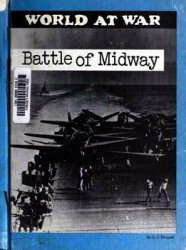The overwhelming American victory at the Battle of the Thames broke the back of the last organized Native American resistance east of the Mississippi. The leader of the movement to unite the nations, Tecumseh, died in the encounter.
The Thames River flows through Canada near the U. S. border at Detroit, Michigan. During the War OF 1812 (1812-15), Great Britain feared the Americans would launch an invasion into the region around it to seize control of the Great Lakes and possibly annex the entire colony. Americans made several failed attempts to conquer the area in 1812 and 1813.
On September 27, 1813, William Henry Harrison and 3,000 Americans crossed uncontested into Canada. Tecumseh and his warriors had fallen back into British territory in the hopes that they would defeat the Americans and reclaim their homes in the Michigan and Indiana territories. The British commander, Major General Henry Proctor, wanted to retreat to a more defensible spot further away from the border. Tecumseh convinced Proctor to face the enemy along a narrow stretch of road between the Thames River and a swampy thicket. However the 450 British troops ran from their positions at the road after a brief assault by the powerful American forces. Americans quickly crushed the remaining 800 Native American warriors who had stayed to cover the retreat. Tecumseh died in the fighting, and his body was never recovered.
After the battle, most of the Native Americans south of the Great Lakes accepted that the United States was too strong for them to stop. Within two decades, the government forced most of the remaining nations to move west of the Mississippi.
Further reading: R. David Edmunds, Tecwmseh and the Quest for Indian Leadership (Boston: Little, Brown, 1984).
—George Milne
Thoreau, Henry David (1817-1862) philosopher, poet
Essayist, poet, naturalist, educator, and lecturer, Henry David Thoreau was born on July 12, 1817, in Concord, Massachusetts. His father, John Thoreau, was a pencil manufacturer. The young Thoreau attended Concord Academy and Harvard College, graduating in 1837. He then worked as a public-school teacher to supplement his family’s income and pay for his college EDUCATION. Later, he opened a day and boarding school from the family home. Shortly after returning from Harvard to Concord, Thoreau met fellow intellectual Ralph Waldo Emerson. They soon began a remarkable relationship based on their work in the important literary movement of transcendentalism.
The new TRANSCENDENTAL movement was mainly comprised of young men and women from New England who rejected formal RELIGION for what they called “The Transcendental Law.” This was the moral law through which man discovers for himself the nature of God. Transcenden-talists like Thoreau believed that God was embodied in a spirit whose essence could never be defined or contained by tedious, learned texts or rules. Rather, transcendental-ists advised looking to the fluid, energetic, and “transcendental” unity of life. They celebrated a somewhat vaguely defined, but nonetheless liberating, “truth” whose essence could only be discovered through the natural world. The simple life was celebrated, although few adherents to the movement took that as far as Thoreau.
Thoreau began publishing poetry and essays regularly in the transcendentalist magazine The Dial. From 1845 to 1847, he formed the basis for 18 more essays, collectively entitled Walden; or Life in the Woods, when he moved to a cabin on Emerson’s property near Walden Pond in Concord in order to live as simply and as close to nature as possible. Midway through his stay there, Thoreau refused to pay the local poll tax because of his opposition toward a government that condoned SLAVERY and had launched what he considered an imperialist war against Mexico. Thoreau’s one night in jail as well as his thoughts on the subject fueled the essay “Resistance to Civil Government,” or “Civil Disobedience” (1849), in which he espoused the
Title page of Walden, by Henry David Thoreau (Library of Congress)
Need to live up to higher ideals than those of civil society— even if this meant breaking laws in the process. “The law will never make men free,” he declared, “it is men who have got to make the law free.”
Thoreau continued his own private form of social activism after he moved out of the woods. He wrote essays and delivered lectures such as “Slavery in Massachusetts” (1854) in support of the ABOLITION MOVEMENT. He explained his ideas on the role of the state: “There will never be a really free and enlightened state until the state comes to recognize the individual as a higher and independent power. . . and treats him accordingly.” Following John Brown’s failure to incite a slave revolt with his raid on Harpers Ferry, Thoreau delivered “A Plea for Captain Brown” (1859) in order to exonerate Brown in the eyes of the law for living up to a higher ideal. Brown was hanged, however, and it is believed that the incident shocked Thoreau so much as to hasten his own death.
After spending a few years beginning a study of the plight of Native Americans, Thoreau, who had suffered from tuberculosis for many years, finally died of its effects on May 6, 1862. His final works, The Maine Woods (1864) and Cape Cod (1865) were published posthumously.
Further reading: Walter Roy Harding, The Days of Henry Thoreau: A Biography (Princeton, N. J.: Princeton University Press, 1992); Sandra Harbert Petrulionis, To Set this World Right: The Antislavery Movement in Thoreau's Concord (Ithaca, N. Y.: Cornell University Press, 2006); Robert Richardson, Henry Thoreau: A Life of the Mind (Berkeley: University of California Press, 1996); Samuel Agnew Schreiner, The Concord Quartet: Alcott, Emerson, Hawthorne, and Thoreau, and the Friendship That Freed the American Mind (Hoboken, N. J.: John Wiley & Sons, 2006); Henry David Thoreau, Walden and Other Writings of Henry David Thoreau, edited by Brooks Atkinson (New York: Modern Library, 1992).
—Lee Ashley Smith




 World History
World History









